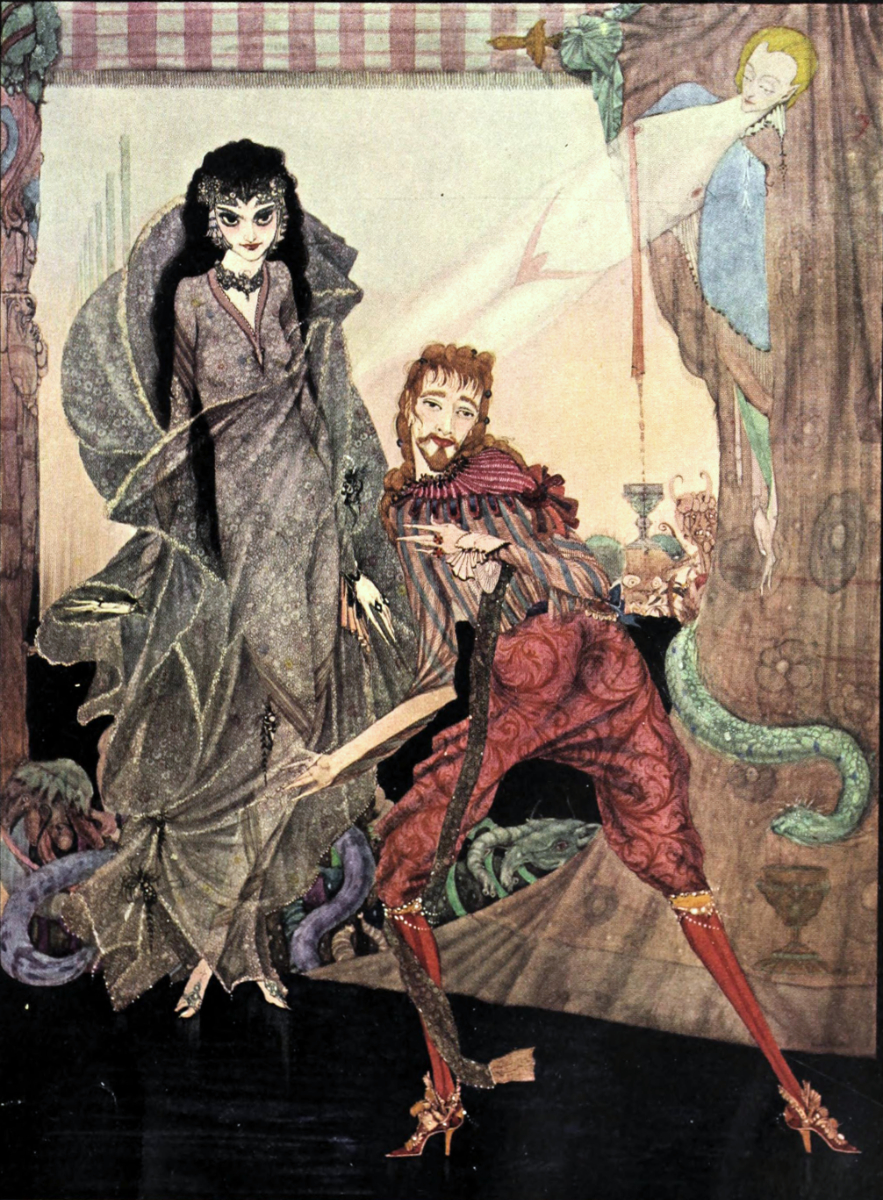“Ligeia” follows an unnamed narrator and his wife Ligeia, a beautiful and intelligent raven-haired woman. She falls ill, composes “The Conqueror Worm”, and quotes lines attributed to Joseph Glanvill (which suggest that life is sustainable only through willpower) shortly before dying. After her death, the narrator marries the Lady Rowena. Rowena becomes ill, and she dies as well. The distraught narrator stays with her body overnight and watches as Rowena slowly comes back from the dead – though she has transformed into Ligeia. The story may be the narrator’s opium-induced hallucination, and there is debate whether the story was a satire. After the story’s first publication in The American Museum, it was heavily revised and reprinted throughout Poe’s life.
| Alias Ligeia |
| Real Names/Alt Names Ligeia |
| Characteristics Literary Characters, Occult, Realism and Victorian Age |
| Creators/Key Contributors Harry Clarke, Edgar Allen Poe |
| First Appearance “Ligeia” in Baltimore American Museum (September 1838) |
| First Publisher The American Museum |
| Appearance List Collections: Tales of Mystery and Imagination (1923). Film: The Tomb of Ligeia (1964). |
| Sample Read Tales of Mystery and Imagination [Internet Archive] |
| Description “Ligeia” follows an unnamed narrator and his wife Ligeia, a beautiful and intelligent raven-haired woman. She falls ill, composes “The Conqueror Worm”, and quotes lines attributed to Joseph Glanvill (which suggest that life is sustainable only through willpower) shortly before dying. After her death, the narrator marries the Lady Rowena. Rowena becomes ill, and she dies as well. The distraught narrator stays with her body overnight and watches as Rowena slowly comes back from the dead – though she has transformed into Ligeia. The story may be the narrator’s opium-induced hallucination, and there is debate whether the story was a satire. After the story’s first publication in The American Museum, it was heavily revised and reprinted throughout Poe’s life. |
| Source Ligeia – Wikipedia |

